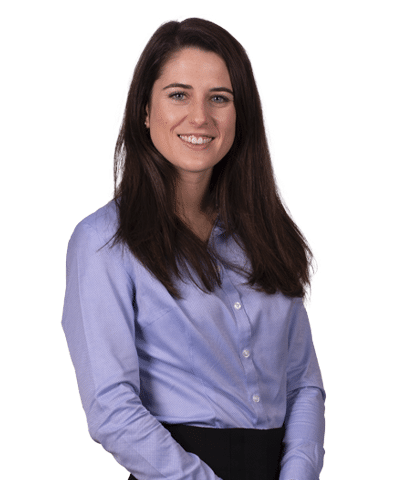
Planning to move to the canton of Valais and apply for a B/L permit in Verbier? There are a few things you need to consider beforehand.
Apply for the right Swiss permit
Upon arrival, any foreigner must announce himself/herself to the commune within 14 days and apply for the appropriate residency permit, where the procedures are handled by the Service de la Population et de la Migration in Sion.
There are seven main categories of permit procedures to be able to work, carry an independent activity, retire or settle without an activity in Valais:
-the EU-27/EFTA B/L permit
-the 90 days of work per year procedure
-the British post-Brexit category
-the non-EU category
-the family reunification category
-the lump sum tax agreement B permit
-the retiree B permit category
The EU-27/EFTA L or B permit
EU-27/EFTA citizens are regulated by the Agreement on the freedom of movement of people (AFMP) or ALCP in French, meaning that they can settle and work in Switzerland without any difficulties as long as they can prove that they have sufficient funds to cover their costs or hold a signed work contract.
The L EU permit is granted for a maximum of one year whereas the B EU permit is delivered for five years, depending on the length of the work contract and planned activity.
The EU worker can apply for the permit and start working without having to wait for the permit to be granted.
The independent worker must provide a business plan and a copy of the company’s registration document as well as the projected revenues over the next three years.
The seasonal L EU permit is quite common in Valais, mainly concerning EU snow sports instructors and hospitality staff who come and work during the winter season. An L permit can be renewed every year for the snow season, as long as the person holds a work contract. To transform an L EU into a B EU permit, the worker will have to provide a work contract going over one year or produce work contracts succeeding without any interruptions for an indefinite period.
The 90 days of work authorization for EU-27 citizens is to be completed online, through the SEM’s link: https://www.sem.admin.ch/sem/fr/home/themen/fza_schweiz-eu-efta/meldeverfahren.html
Furthermore, any EU-27/EFTA citizen can settle in Valais without working by requesting a residency permit with no activity if they can provide proof of sufficient funds or revenues from overseas to cover their costs in Switzerland without requesting support from Swiss social services.
The British post-Brexit L and B permit
For British citizens, things have become more complex since the enforcement of Brexit. Since January 2021, British citizens are considered as non-EU in terms of permits, the only difference lies in the fact that special quotas exist (2500 B and 1400 L permits for 2023). However, a work permit is applied for by the employer only, by proving that no one on the Swiss and European job market fulfilled the conditions of the advertised position and that the British worker is highly qualified. The canton can approve the permit request directly, without the federal level being involved.
The independent British citizen will have to demonstrate that the proposed business will contribute to the canton’ s economy and create jobs at the local level. Revenues over the next three years will have to be detailed and realistic.
British ski instructors therefore face more difficulties to obtain a short-term L permit for the season, it will be up to the ski institutions to advertise the positions and apply for their permits in advance through the cantonal immigration authority. Every 1st January the quotas are reset.
Important: British citizens who arrived in Switzerland prior January 2021 have their rights protected under the protection of acquired rights. That means that a British citizen who was holding a B permit before 2021 is still assessed as an EU citizen and will be able to remain under the conditions of the AFMP. Family reunification procedures to bring spouses, children or parents are therefore more flexible for British B permit holders who arrived here before Brexit.
The non-EU L or B permit
Non-EU workers cannot apply directly for an L or B permit, it is the responsibility of the employer to obtain the permit by proving that the position was properly advertised and that no one on the Swiss and European job market met the conditions for the job. Strict conditions apply and the quotas for annual permits available can rapidly run out in some cantons like Geneva, Vaud and Zurich where multinationals hire a number of skilled workers each year.
Non-EU entrepreneurs can in some cases apply for an L permit to implement and develop a business in Switzerland, if they can show that the business will contribute to the canton’s economy of the canton and create interesting employment opportunities.
For non-EU citizens, permit applications are firstly assessed by the canton and then reviewed by the SEM (“Secrétariat d’Etat aux Migrations”) in Bern at the federal level. The SEM has the discretionary power to accept or decline a non-EU L or B permit application.
Non-EU citizens cannot settle in Switzerland without an activity unless they retire, come under family reunification or meet the lump sum taxation agreement conditions.
Family reunification is a procedure based on the citizenship of the main person who has the right to receive a permit, where spouses and children can receive a permit to live with the main applicant in Switzerland. The key condition is to live under the same roof.
The lump sum taxation and residency permit in Valais
Lump-sum taxation, also known as expenditure-based taxation, is a simplified taxation system through which the taxpayer’s taxes are based on their spending and not on their revenues. The tax is calculated on the basis of the taxpayers’ total annual cost of living in Switzerland and abroad, for themselves and their dependents.
The law sets the minimum value on the basis of which the tax must be calculated. This value is based on a comparative system. Three elements are considered. Firstly, the tax calculated on the amount set by the law representing the minimum amount for expenditure. On a federal level, this amount is of CHF 400’000.- for European citizens. For non-European citizens, the minimal amount can vary as it is set by each canton. Secondly, the tax calculated on the annual rental value or gross rent multiplied by seven or three times the annual cost for housing and food. Lastly, the expenditure-based tax cannot be lower than the tax on certain gross elements of income and wealth in Switzerland. The foreigner cannot work while holding a B permit under the lump sum taxation agreement and is expected to buy a property in the canton and spend his fortune in the area where he is based.
The retiree residency B permit
First of all, the non-EU applicant must be over 55 and must be able to demonstrate strong personal ties with the canton and region where they are planning to settle. The retiree cannot undertake any work activities and must sign a statement certifying that they will not work while living in Switzerland.
The applicant will have to prove several trips to Switzerland in the past, strong ties with family members living in the canton and with Swiss residents as well as personal interests in the canton. Proof of memberships to local associations or any involvement with the local Swiss community will be assessed by the authority. It is expected of the retiree to be able to communicate in the language of the domicile by holding an A1 or A2 French language certificate.
The retiree must be able to prove that he will transfer his center of interest to Valais and has sufficient funds to cover living costs for the rest of their life without financial support from the canton.
Key points
- A foreigner cannot choose which type of permit they will receive when arriving in the canton
- Buying a property in Valais does not grant any rights to obtain a permit
- Investing in a company does not grant residency rights
- Holding a work contract does not always mean that you will receive a work permit
- Seasonal L permits concern mostly EU-27/EFTA citizens
- British citizens having arrived before Brexit have the protection of acquired rights
- British citizens having arrived after the 1st January 2021 cannot apply for a work permit without an employer
- Independent work permits can be sometimes granted to entrepreneurs registering a company in the canton who will hire a number of workers from the local job market and boost the economy
- Any visitor can stay up to 90 days in Switzerland for tourism purposes
How to proceed ?
For Verbier and the Val de Bagnes region, the “Office de la population” is in charge of registering arrival forms and permit applications before sending them to Sion.
We offer immigration services based in Verbier for all expats and companies planning to settle in Valais. During the winter months, we run a consultation desk every Thursday afternoon from 14h to 18h at the Mountain Hub, in the heart of Verbier
Send us an email to book your appointment or to discuss your situation on info@legalexpat.ch or call 022 787 04 60.
We represent individuals and companies who are planning to settle in Valais, contact us !
12/01/23 – Alexa Mossaz, immigration manager at Legal Expat







